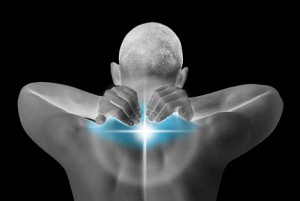
Muscle tension occurs when one more or muscles in the body remains contracted for a prolonged length of time. Nearly everyone will experience this condition at some point in their life, some more frequently than others. While muscle tension may seem harmless enough, it can actually trigger a variety of adverse symptoms and side effects.
Heart Disease
Chronic muscle tension may increase your risk of heart disease. When the muscles remain in a constant state of tension, blood pressure rises, placing additional stress on arteries, blood vessels and organs. Subsequently, this can lead to stroke or other serious heart disease. And with heart disease being the number one cause of death among both men and women in the US*, muscle tension is a symptom that shouldn’t be ignored.
Digestive Problems
Another way in which muscle tension affects the body involves the digestive system. When muscles become tense, it can press against the intestines and stomach, restricting bowel movements. This is why many people who experience chronic muscle tension also report indigestion and constipation.HeadachesThere’s some belief that muscle tension is linked to headaches and migraines. This makes sense considering the fact that tense muscles promotes high blood pressure, which subsequently affects the nervous system.
Back Pain
You might be surprised to learn that muscle tension can even lead to back pain if left unchecked. We’ve talked about this before on our blog, but it’s worth mentioning again that back pain is the single leading cause of disability, affecting more than 30 million Americans at any given time. Muscle tension is believed to play a role in back pain, as the tense muscles press against the vertebrae and supporting structures.
Find Relief With Massage Therapy
The good news is that you can relieve muscle tension through massage therapy. A quick 30-60 minute session can make a world of difference in health. A professional massage therapist will use a variety of manipulation techniques to soothe your muscles, releasing any built-up tension within. Many people report a positive improvement in their muscle tension after just a single massage session. And if you return for multiple sessions, you’ll experience an even greater level of relief.
In addition to massage therapy, you should also consider stress-reducing techniques. Psychological stress is one of the largest risk factors of muscle tension. People who are stressed on a regular basis are more likely to experience muscle tension. Some people assume that stress is only in mind, but the fact of that matter is that it can cause physical symptoms to manifest as well, including muscle tension.
*source http://www.cdc.gov/
